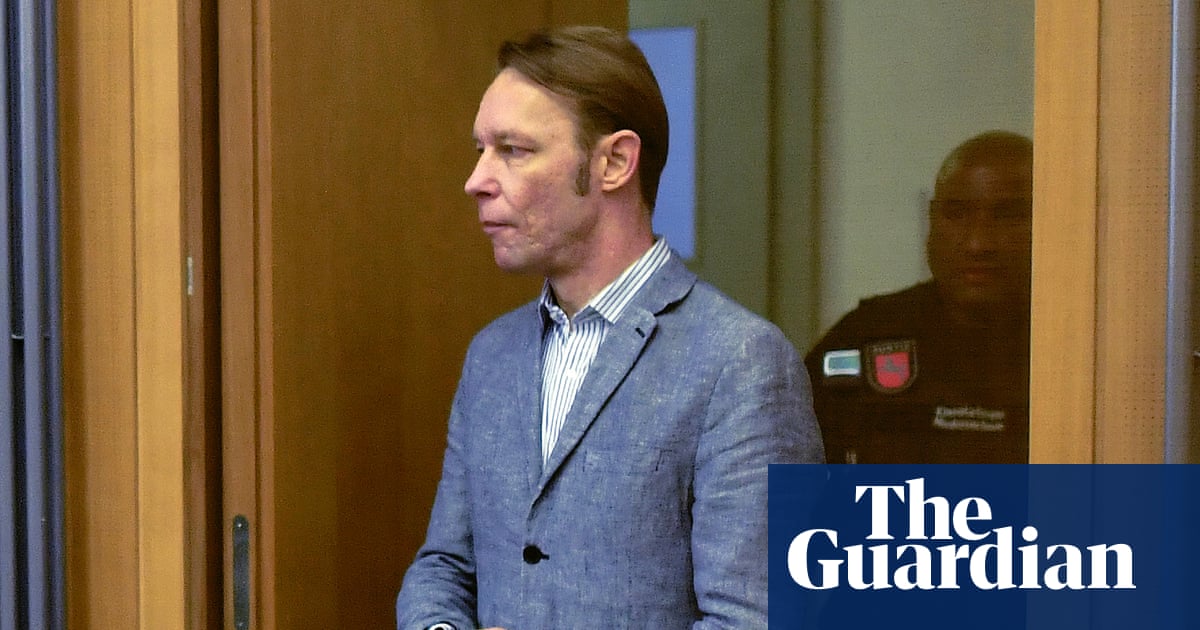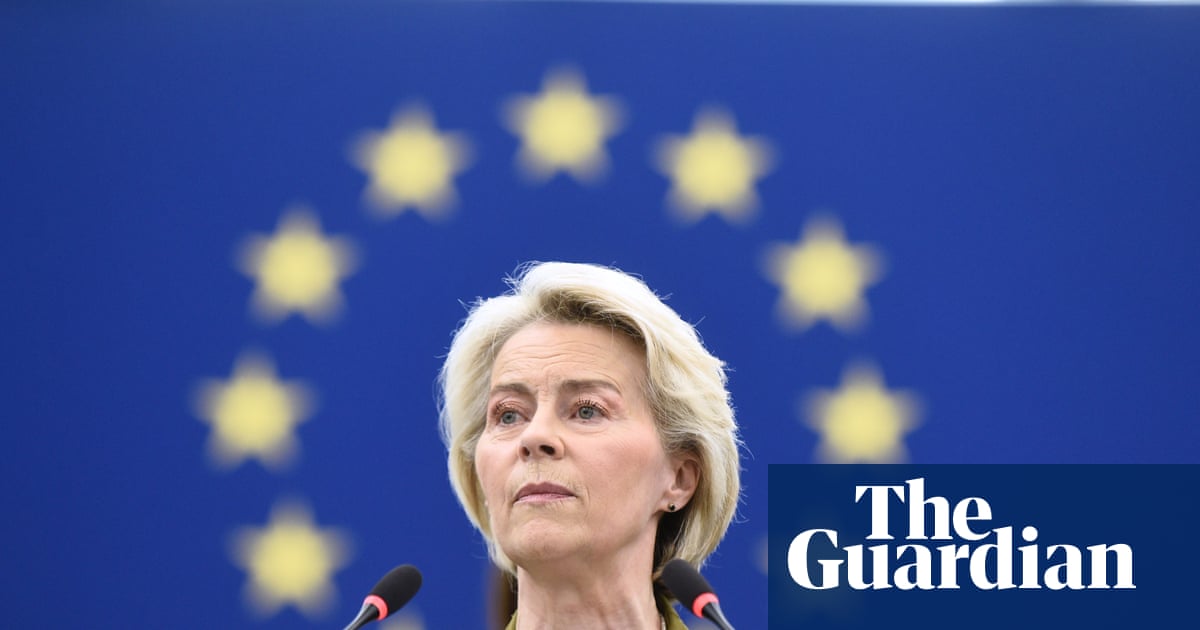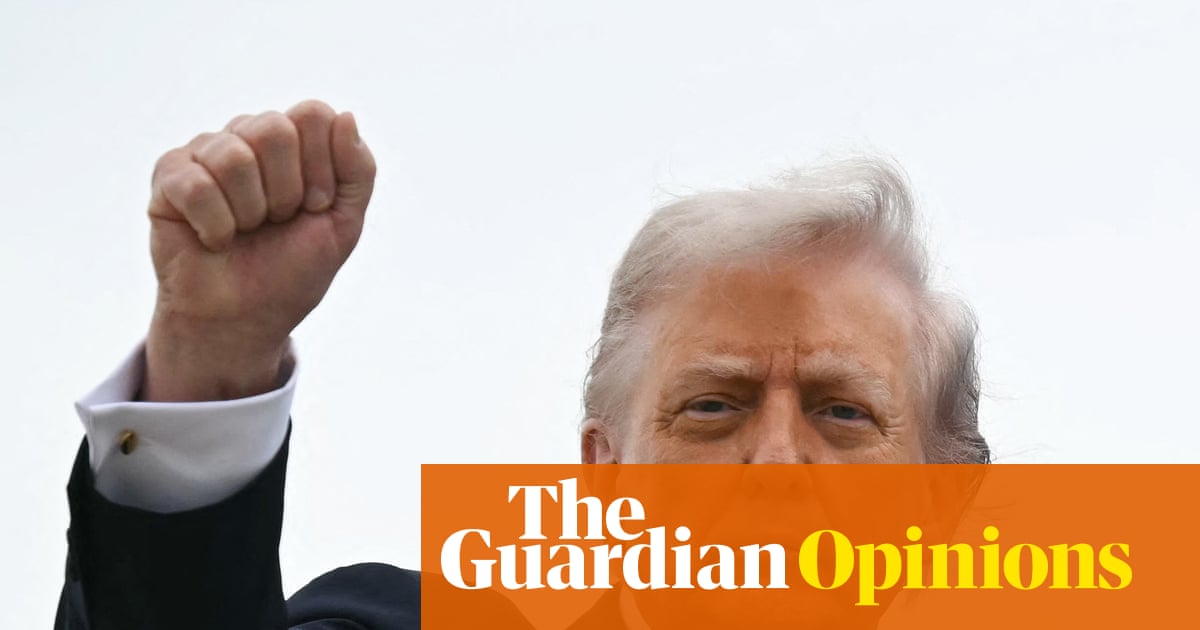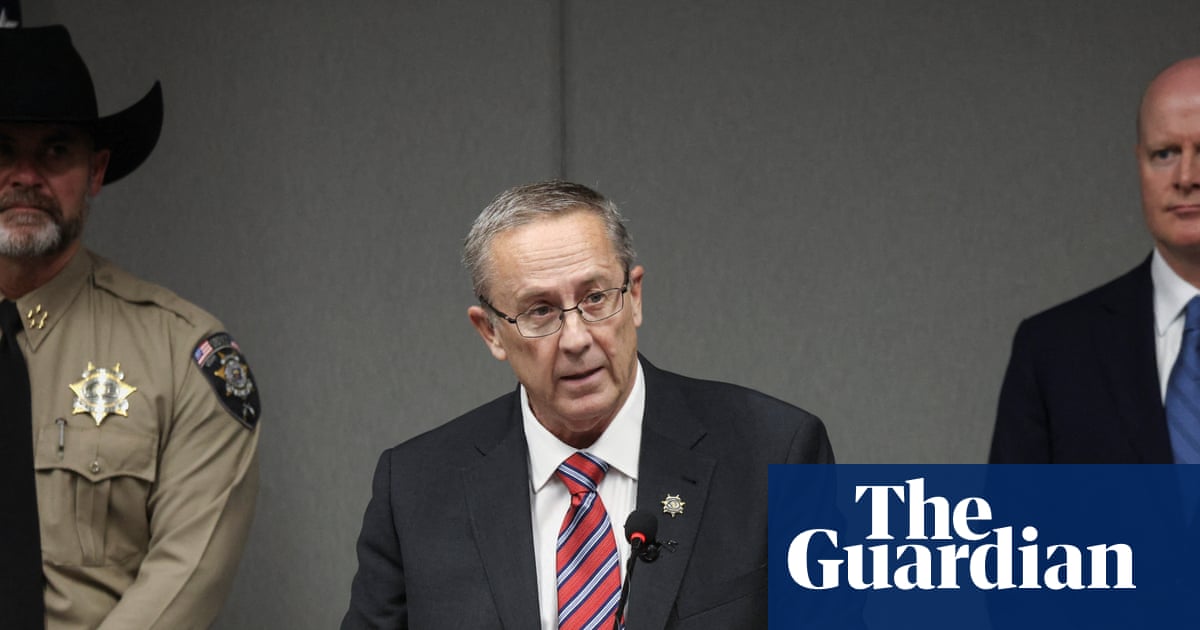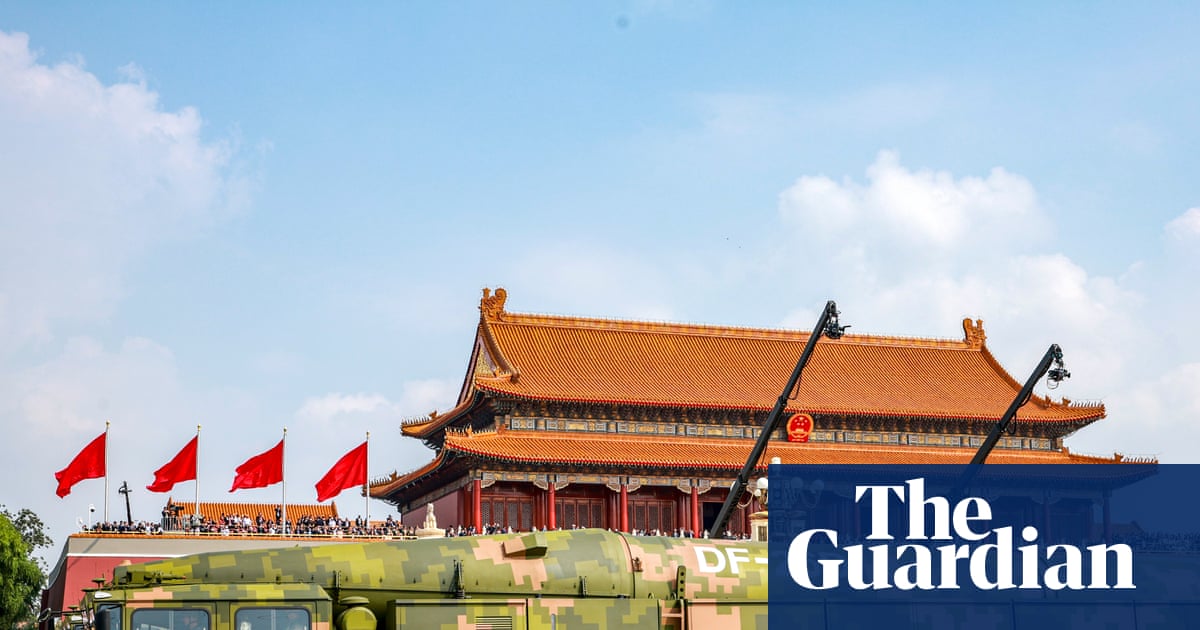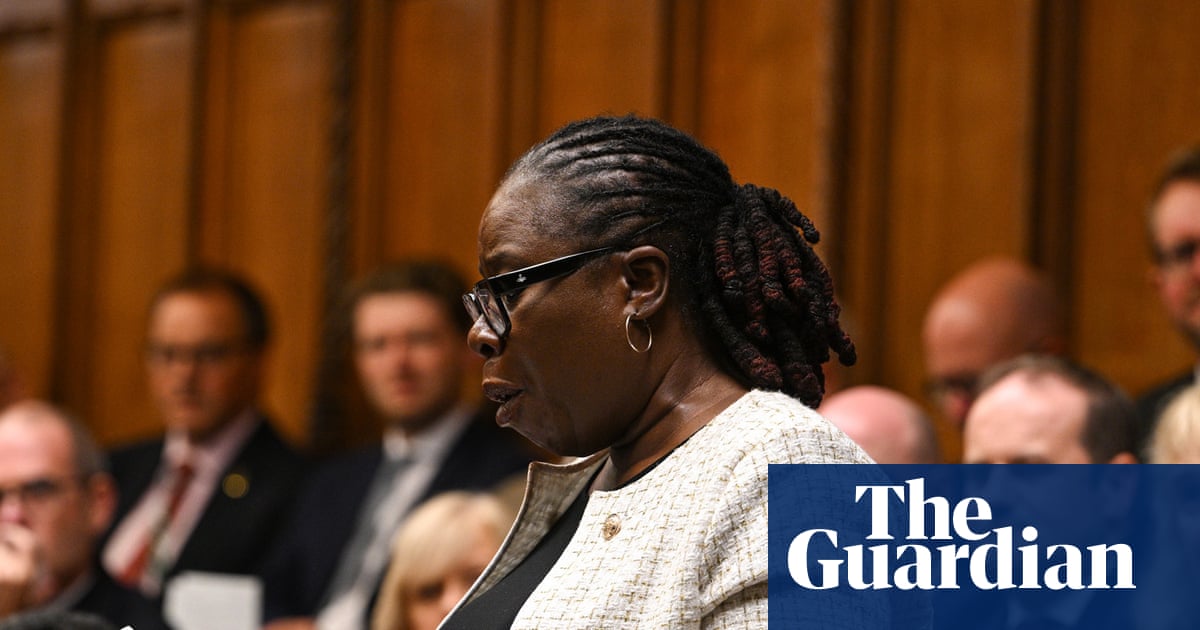Germany’s new conservative leader, Friedrich Merz, is due in Washington on Thursday for his first official meeting with Donald Trump, putting political Berlin on tenterhooks like no other transatlantic encounter in living memory.
Discussions between the German chancellor and the US president will focus on Ukraine, the Middle East and trade policies. How well or badly the talks go – during a small group meeting, followed by a lunch and then, perhaps most nailbitingly, a press conference in the Oval Office – may shape relations for decades to come, analysts say.
Long before Merz’s plane was due to take off on Wednesday evening, political observers in Berlin were weighing up the most nuanced of indicators as to how the visit might play out. The fact that Merz is being put up in Blair House, the official government guesthouse – a factor that convinced his advisers he should stay the night, when he otherwise might have just slept on the plane – is being seen as a positive sign.
Also, having reportedly spoken by phone four times since Merz’s election win in February, swapped numbers and exchanged an undisclosed number of text messages, the two leaders are now on first-name terms – something that, culturally at least, doesn’t come easy to a German. German government advisers say it bodes well that they have dropped “Mr President” and “Chancellor” in favour of Donald and Friedrich.
But Merz knows the road to a normal friendship is thorny. The transatlantic relationship has been altered almost beyond recognition since Trump’s return to office, and the shock “sits very deep”, said Mariam Lau, a journalist and the author of a new in-depth portrayal of Merz.
“It’s the equivalent of a medical emergency in political terms: the speed and degree to which the Merz government has had to react to the disintegration of the transatlantic alliance, one of its main foreign policy pillars, is like being forced to undergo dialysis or an organ transplantation,” Lau said.
Berlin has viewed as menacing and dangerous the unprecedented interference in German politics by leading members of the Trump administration – by his former adviser Elon Musk; the secretary of state, Marco Rubio; and the vice-president, JD Vance, in particular. There is the lack of unity over how and even whether to punish Vladimir Putin over his invasion of Ukraine, there are tensions over defence spending levels, and there are diverging viewpoints over the Middle East, and over Trump’s looming tariffs.
Lau said Merz would have to “walk a tightrope between keeping an open dialogue with Trump and standing up to him, not giving into his whims”. She said his immediate concern would be that the US did not back out of supporting Ukraine.
The German leader’s first proper taste of conversing with Trump came shortly after Merz entered office last month. He told an audience in Berlin that during a half-hour phone conversation the two spoke, among other things, about places and people in the US with which they were mutually acquainted, Merz from his time when he took a break from politics and worked there as a commercial lawyer. “Every second or third word was ‘great’,” Merz recalled.
He made sure to congratulate Trump on the election of the new North American pope.
Several people on both sides have stressed the “positive tone”, the importance of which Lau said was not to be underestimated, “because the tone is the politics”.
But nobody in Berlin is resting on their laurels. As to just how quickly leaders’ inaugural visits to the Oval Office can curdle, one only needs to recall Volodymyr Zelenskyy’s lions’ den encounter three months ago, or more recently the South African president Cyril Ramaphosa’s. It has not gone unnoticed that Merz called the latter last Friday, reportedly to pick up a few Trump-whisperer tips.
Normally, a visit such as this would not get so much attention in Berlin, according to Henrike Rossbach, a parliamentary correspondent for the Süddeutsche Zeitung. “But the chancellery has long since recognised that the most reliable thing about Trump is his unpredictability … and the Oval Office has been labelled as an item on the agenda containing residual risk.”
The type of reception Merz gets could come down to the mood Trump happens to be in that day. Not something a typical German mind, keen on structure and order, usually finds easy to deal with.
But Merz is said to have been coached on an array of eventualities and is armed, rhetorically at least. If pushed by Trump on longstanding issues of bilateral disgruntlement such as Germany’s underspending on the military, Merz will lay out his new government’s plans to increase contributions to 3.5% of GDP in future, as well as investing a further 1.5% in “defence relevant infrastructure”.
after newsletter promotion
“Though, keeping it short for Trump, he may just round it up to 5%,” said the Frankfurter Allgemeine’s political correspondent Matthias Wyssuwa.
Getting the grounding right on this will be seen as crucial by Germany’s allies before the G7 summit in Canada in mid-June and, a week later, the Nato summit in The Hague, both of which Trump is expected to attend.
Merz will also stress his government’s tightened immigration policy, recalling how Trump criticised Angela Merkel on this topic during his first term of office in 2017.
When it comes to tariffs, in particular a punishing 50% on aluminium and steel introduced the day before his arrival, Merz has already prepped – and used – the firm sentence that the US should remember it is dealing with a marketplace of 500 million consumers when it does business with the EU’s 27 members.
Merz knows that keeping things brief, not interrupting, heaping praise and stressing the commonalities is the accepted playbook when dealing with Trump.
The subject of Trump’s German roots might also help. It was apparently the US president who brought it up when they spoke – even though until well into the 1980s Trump had been apparently keen to hide the fact.
Trump’s grandfather Friedrich changed his name to Frederick upon emigrating to the US in 1869. Merz has already discussed with Trump the idea of bringing him on a heritage tour of his old heimat, Kallstadt, a village in the rural wine region of south-west Germany famous for its grape juice and speciality pig’s stomach (there has been speculation this might be what he ends up giving the teetotal president as a gift). However, it would require treading carefully with the locals who, anecdotally at least, seem far from enthusiastic about hosting him, far less erecting a statue of their most famous son as some have suggested.
Usefully, Merz knows the region, having completed his military service there in the 1970s. One subject he may choose to avoid, though, is the fact that Trump’s grandfather was in effect kicked out, deported as punishment for having skipped the mandatory military service of the day.

 3 months ago
94
3 months ago
94



